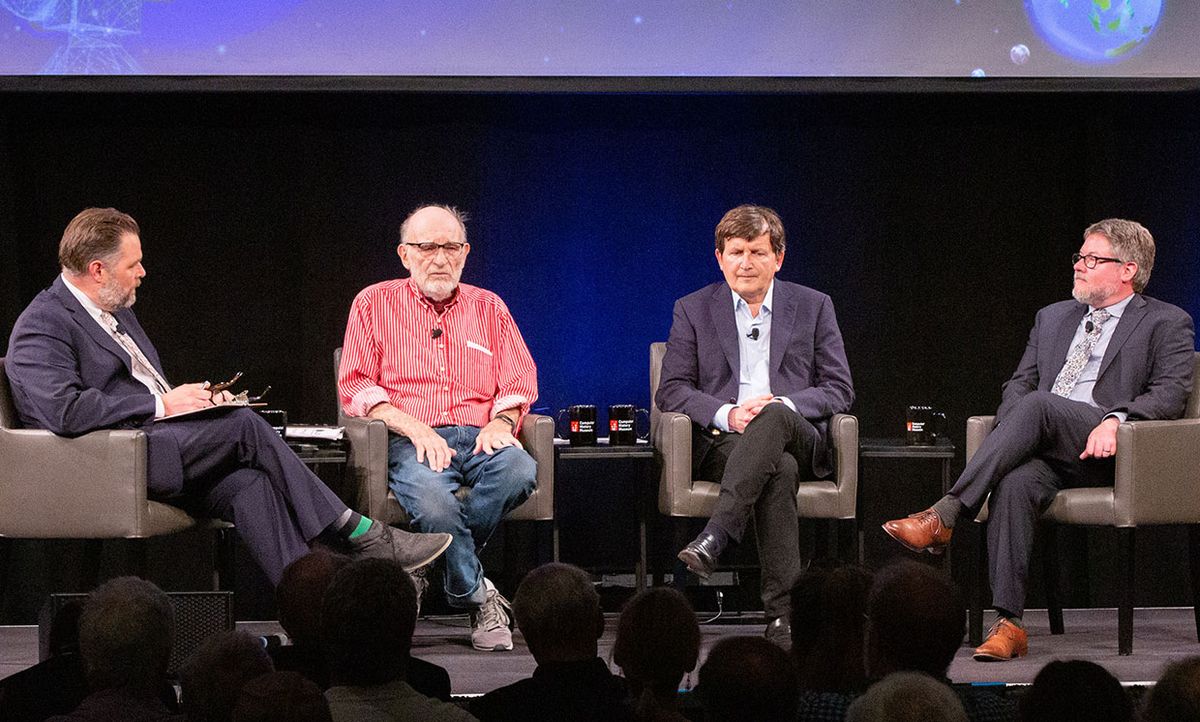Is space exploration best done by man? Or machine? Space historian Matthew Shindell and software pioneer and space tourist Charles Simonyi debated the possibilities during a panel on computing and space held last week at the Computer History Museum.
Shindell, curator at the National Air and Space Museum, started with a little historical perspective. “When we talk about history of space exploration, imagining how humans might live and work in space, we go back to early 50s.”
Nobody at that time, he explained, could imagine computers having much use in space, given that the leading computer of the time, the Univac, took up a whole room. So even future communications satellites and observatories were assumed to be manned, with an astronaut connecting phone calls via a switchboard or an astronomer making observations of the stars from a space-based platform.
“Humans were thought to be necessary for every activity in space,” Shindell said.
The vision changed as fast—or faster—than the technology. “By 1968,” Shindell said, “when the movie 2001… “imagines an artificially intelligent computer able to operate an entire spacecraft.”
Shindell, however, still thinks that, in space exploration, humans have a certain edge. “Robots are fantastic,” he said, “but only cover short distances compared to a human in the field. A human on Mars could cover a lot of what rovers have done in a matter of a week.”
Simonyi, now a Microsoft technical fellow, begged to differ.
“I don’t see that,” he said. “Here [on earth], if I want to go far, I take a car. And humans are so expensive, you have to bring them back. You have to feed them. Terrible idea for science.”
Shindell pointed out that the actual value of the speed of humans is arguable, though indeed they can make real-time decisions about what rocks to pick up or features to explore.
The two turned to consider the boom in private space efforts, and the claim by Amazon CEO and Blue Origin founder Jeff Bezos that there will someday be trillions of people living in space.
“He’s not kidding,” Simonyi said, but indicated such a future exceeded the limits of his imagination.
That’s not saying it won’t happen, he reflected. “I remember Alan Kay talking about the Dynabook, I thought no way, a flat display, color… I thought it was impossible, but now it is an everyday thing.”
Tekla S. Perry is a former IEEE Spectrum editor. Based in Palo Alto, Calif., she's been covering the people, companies, and technology that make Silicon Valley a special place for more than 40 years. An IEEE member, she holds a bachelor's degree in journalism from Michigan State University.



